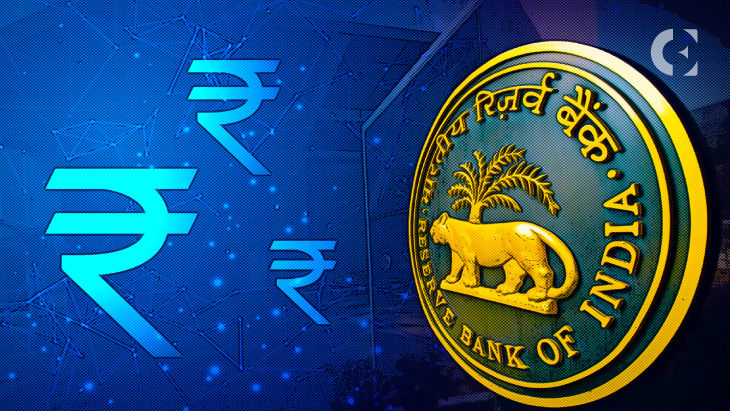- India’s Reserve Bank is looking to run a CBDC pilot program.
- RBI is collaborating with a U.S. financial services provider.
- SBI and the Bank of Baroda are among the major banks chosen to test the CBDC pilot.
According to a September 5 article by Moneycontrol, the Reserve Bank of India (RBI) is in talks with fintech firms and state-controlled banks regarding a pilot program to trial a central bank digital currency (CBDC). The article cites an unnamed public sector bank source who said the experiment could occur before the RBI officially launches a CBDC during the current fiscal year.
Public sector banks, including the State Bank of India, Punjab National Bank, Union Bank of India, and Bank of Baroda, are allegedly in discussions with the RBI about taking part in the trial. At least half of the shares in those financial institutions are held by the government.
The RBI has long indicated that it was considering a staged deployment of a CBDC, most recently stating that an Indian CBDC would be imposed in three stages between 2022 and 2023. Nirmala Sitharaman, India’s minister of finance, has lauded the potential benefits of a CBDC to the country’s economic development in a speech discussing the budget for 2022.
The RBI was also reportedly in contact with a number of different fintech firms, including the American financial services provider FIS. When it comes to CBDC concerns like offline and programmable payments, financial inclusion, and international CBDC payments, FIS has been advising central banks, especially with the launch of its CBDC virtual lab.
According to FIS senior director Julia Demidova, who spoke with Moneycontrol, “FIS has had various engagements with the RBI […] and, of course, our connected ecosystem could be extended to the RBI to experiment various CBDC options.”
In the meantime, it has been widely reported that the RBI is pushing for a complete ban on virtual currencies like Bitcoin and Ether.
A statement made by RBI Deputy Governor T. Rabi Sankar earlier this year stated that cryptocurrencies had “no underlying cash flows” and “no intrinsic value” and that “they are akin to Ponzi schemes, and may even be worse.” He emphasized that “banning cryptocurrency is perhaps the most advisable choice open to India.”
Disclaimer: The information presented in this article is for informational and educational purposes only. The article does not constitute financial advice or advice of any kind. Coin Edition is not responsible for any losses incurred as a result of the utilization of content, products, or services mentioned. Readers are advised to exercise caution before taking any action related to the company.







